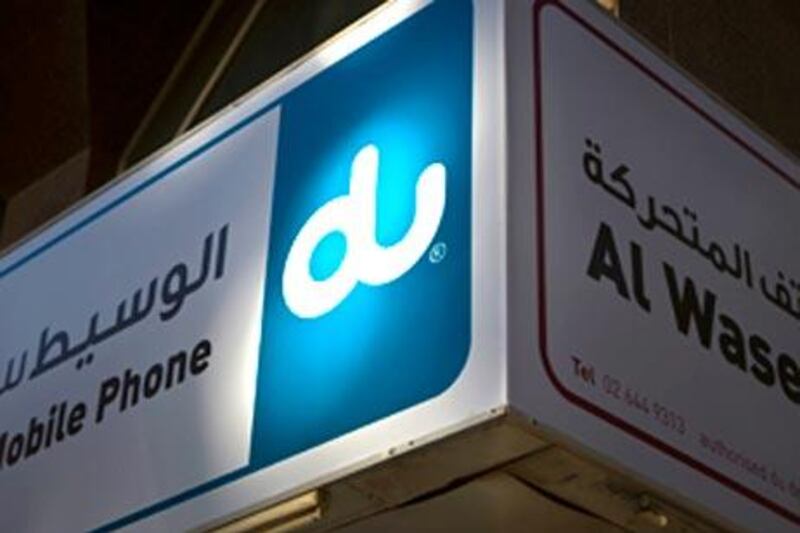International calling prices have been cut by 60 per cent for prepaid customers of the du mobile network, in another move aimed at undercutting the rates of its competitor, Etisalat. Management at du, which has targeted what it describes as the budget-conscious segment of the market since its launch, say the demand for lower-cost telecommunications is increasing rapidly in the UAE. The result could be a more intense phase of competition between the two networks, analysts say, with price cuts and new services launched to keep customers happy and spending. "This is another way for us to give value back to our customers," said Farid Faraidooni, an executive vice president at du. "For the 24 months since we launched, all our services and offers and promotions have been around value for money, and this will remain our focus moving forward." Since the company broke the Etisalat monopoly in early 2007, the Telecommunications Regulatory Authority (TRA) has kept strict controls on pricing. The TRA says the controls aim to avoid a price war that could be devastating for a start-up such as du competing with a deep-pocketed incumbent. The latest du promotion, which gives customers buying a Dh200 (US$54.45) recharge card Dh320 of international calling credit, was submitted to the TRA and approved with no issues raised, Mr Faraidooni said. More discount offers, including special packages for advanced services such as mobile internet browsing, would be launched in the coming months, he said. Both du and Etisalat have released a series of discount offers in the past year, mostly temporary. But du has been more aggressive in its pricing structure, introducing concepts such as per-second billing and permanent discounts to selected numbers. Telecommunications industry analysts said a slowing economy and declining population would put pressure on both networks to do more to retain customers and keep revenues growing. "There will be negative population growth and the type of subscriber growth seen in the last two years will not happen in 2009," said Rakesh Aggarwal, a research analyst at Abu Dhabi Commercial Bank. "I'm expecting some sort of indirect price war. The TRA won't allow a direct price war, but you will see more indirect actions," added Mr Aggarwal. Simon Simonian, a research analyst at Shuaa Capital, said that with Etisalat and du in different phases of growth, each company would have different priorities for competition. "There are more promotions being driven by each company, but the basic rates haven't changed," he said. "What you have is the subscriber share and the revenue share. In terms of the revenue share, I think Etisalat has been doing very well. With new subscribers, du has taken a lead." Etisalat's base of more than seven million subscribers means it will place more focus on offering additional services - such as the Apple iPhone package - to its customers, rather than launching offers to attract new customers, Mr Simonian said. Management at du hope to see a larger number of UAE customers become price sensitive in the difficult economic year ahead, making their discount-focused offers more attractive. "Its debatable," Mr Simonian said. "You have to keep in mind that we are living in a region that has had high inflation. "Everything has became more expensive, but the telephone bill has not changed. In the last year when almost everything increased in price, telecom companies did not raise prices." In offering significantly cheaper international calling prices through the new offer, du could increase the number of Etisalat customers who acquire a du account to use only occasionally, some analysts said. Mr Faraidooni agreed that the "dual SIM" phenomena, which is more active in the UAE than anywhere else in the world, could increase because of offers such as the one launched yesterday. "Just by looking at the figures, it looks like most people have two lines," he said. "We have no doubt this will continue because customers are value smart, and we believe we are well positioned to build on this." tgara@thenational.ae
du cuts international call cost
International calling prices are reduced by 60 per cent for prepaid customers, in a move to undercut Etisalat.

Editor's picks
More from the national




